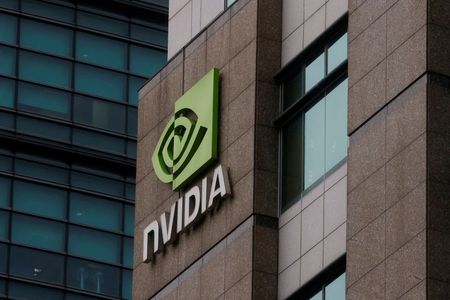 1
1 1
1
(This Feb. 14 story has been corrected to change stock performance to ‘nearly 240%’ from 65%, in paragraph 2)
By David Randall
NEW YORK (Reuters) – Several well-known funds jumped into shares of chipmaker Nvidia at the end of last year, securities filings showed on Wednesday, potentially setting themselves up to benefit from the nearly 50% gain the stock has notched so far in 2024.
Nvidia has been a top beneficiary of technology companies’ race to build artificial intelligence into their products and services, with investor excitement over the new technology sending the stock up nearly 240% last year.
The chipmaker overtook Alphabet as the third most valuable U.S. company on Wednesday, with a market capitalization of $1.78 trillion.
Among the funds adding new stakes in Nvidia were Rokos Capital Management, which bought more than 254,000 shares, a stake worth more than $126 million as of the end of December.
Bridgewater Associates, the hedge fund founded by billionaire Ray Dalio, increased its stake in Nvidia by 458% to more than 268,000 shares. The position was valued at $133 million at the end of December.
Arrowstreet Capital, meanwhile, added 3.9 million shares to its previous small position, leaving it with a $2.1 billion position.
Some funds, meanwhile, sold all or part of their stakes.
Greg Poole’s Echo Street Capital Management sold all of its more than 355,000 shares. D1 Capital Partners sold nearly 147,000 shares, closing out its position, while Discovery Capital Management sold its about 119,000 shares, which had been 9.2% of its prior portfolio.
The positions were revealed in securities filings known as 13Fs that hedge funds and other institutional investors file at the end of each quarter. While they are backward-looking and do not reveal current holdings or short positions, the filings are one of the few ways to gain insight into the portfolios of often-secretive funds.
Nvidia will release its quarterly earnings results on Feb. 21. Analysts, on average, see the company’s January fiscal quarter revenue more than tripling to $20.37 billion, fueled by demand for its top-shelf AI chips, according to LSEG data.
Analysts see its adjusted net profit surging more than 400% to $11.38 billion.
(Reporting by David Randall; Editing by Ira Iosebashvili and Jamie Freed)